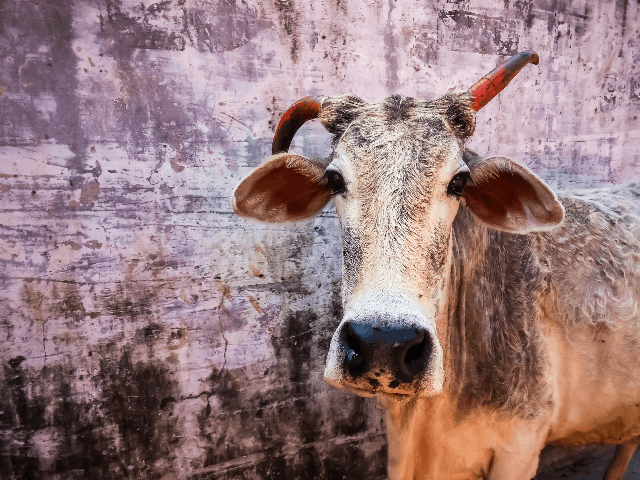Indian political activist Narayan Chatterjee, a member of the ruling Bharatiya Janata Party (BJP), was arrested on Tuesday after one of his customers became sick from drinking the cow urine he was selling as a coronavirus treatment.
AFP reported a civic volunteer became ill after drinking the unappealing bovine beverage on Tuesday during a “cow urine consumption event” organized by Chatterjee. The volunteer filed a report with police, who moved quickly to arrest Chatterjee the same evening.
A top local BJP official saw the incident as an assault on Chatterjee’s free-speech rights to tell people they can ward off the Wuhan virus by drinking cow pee:
The president of BJP’s West Bengal branch told AFP Chatterjee’s arrest was “unfortunate”.
“India is a democratic country. Everyone has the right to express his opinion,” Dilip Ghosh said.
“It’s unfortunate that Chatterjee was arrested for expressing his opinion organising the event. We don’t know if the civic volunteer was forced to drink cow urine.”
Cow urine consumption events are evidently a thing that happens in India, to the dismay of the medical community, which has clashed with advocates of traditional and spiritual medicine since the early days of the coronavirus crisis:
Last week, dozens of Hindu activists held a cow urine party in the capital New Delhi where they staged fire rituals and drank urine from earthen cups in order to fight the COVID-19.
Critics have rejected the urine claims as quackery.
A milk trader in the same state was arrested Tuesday for selling cow urine and dung and claiming they “would keep the novel coronavirus at bay”, senior police officer from Hooghly district Humayan Kabir told AFP.
Kabir said the trader, Sheikh Masud, was selling cow urine at 500 Indian rupees ($6.69) a litre and cow dung at 400 rupees a kilogramme (2.2 pounds).
Masud, who hung a poster at his shop with the words “Drink cow urine to ward off coronavirus” told police he was inspired to sell the excrement after hearing about the Delhi party.
The Indian government introduced stronger measures to fight the spread of the coronavirus on Thursday, including a request for senior citizens and children to say home, suspension of most rail and domestic air travel, and a ban on international commercial flights for one week beginning on March 22.
As of Thursday, India reported 149 active coronavirus cases with four deaths. International observers suspect India has far more infections than the 149 reported, but it has not formally diagnosed most of its cases because testing is very limited.
An Indian medical official said on Thursday that World Health Organization (WHO) calls for more widespread coronavirus testing are “premature” and would cause “more fear, more paranoia, and more hype.”
Other authorities have justified limited testing by predicting there would be a huge rush for unnecessary tests if they were made widely available, draining funds the government needs to deal with other diseases.

COMMENTS
Please let us know if you're having issues with commenting.